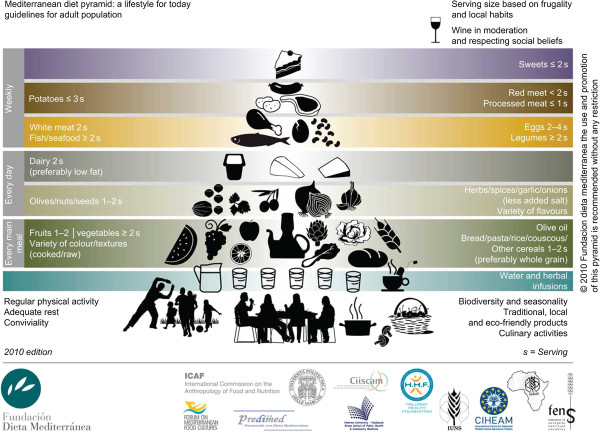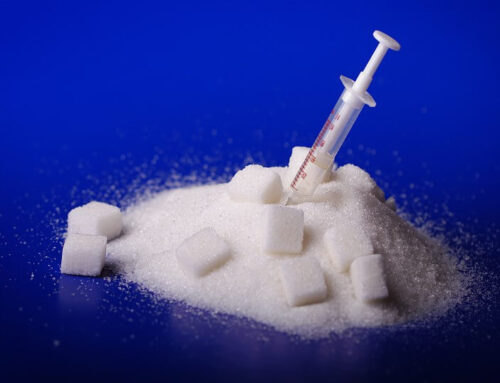 Breast cancer (BC) remains one of the commonest cancers – 12.5% of women will be diagnosed with BC during her lifetime. There are strong links between environmental/lifestyle factors and breast cancer, suggesting that changing these factors may result in decreasing cancer risk. Evidence shows that in addition to genetic predisposition and estrogen exposure, a number of lifestyle, environmental, and pharmacological factors play an important role in BC risk and BC survival:
Breast cancer (BC) remains one of the commonest cancers – 12.5% of women will be diagnosed with BC during her lifetime. There are strong links between environmental/lifestyle factors and breast cancer, suggesting that changing these factors may result in decreasing cancer risk. Evidence shows that in addition to genetic predisposition and estrogen exposure, a number of lifestyle, environmental, and pharmacological factors play an important role in BC risk and BC survival:
- Optimal physical activity decreases insulin resistance, diabetes risk, and the risk and progression of breast cancer
- Adhering to a healthy dietary pattern – a modernized Mediterranean diet or a similar healthy diet adapted to specific populations has been shown to be effective. See below for a summary of the Mediterranean diet.
- Emphasis should be given to increasing plant and animal (including marine) omega-3 fats, and decreasing plant and animal omega-6 fats
- High polyphenol consumption, in particular of flavonoids (examples include parsley, onions, blueberries and other berries, black tea) is associated with lower BC risk
- To reduce insulin resistance and diabetes, which are associated with an increased BC risk, women should increase their consumption of omega-3 fats, fiber and favor low-glycemic index
foods - Organic foods have been shown to contain more polyphenols and have a higher n-3/n-6 ratio than non-organic foods
- Reduce exposure to environmental chemical contaminants – particularly endocrine disruptors. Endocrine disruptors may be found in many everyday products– including plastic bottles, metal food cans, detergents, flame retardants, food, toys, cosmetics, and pesticides.
- Drugs that decrease the n-3/n-6 ratio, and/or increase insulin resistance and diabetic risk (in particular statins) should be taken with caution (examples include cholesterol lowering
statins, drugs suspected to increase insulin resistance)
The Mediterranean diet is characterized by the consumption of:
1. A wide variety of raw, sometimes cooked, seasonal vegetables throughout the year (examples are onions, garlic, parsley, rosemary, oregano)
2. Fruit throughout the year, both fresh and dried
3. Various nuts (examples are almonds, hazelnuts, walnuts)
4. Grains, preferably whole
5. Fatty fish, including anchovy, sardine, mackerel, sea bream and red tuna
6. Olive oil
7. Goat and ewe milk (in the fermented forms of cheese and yogurt)
8. Eggs and small amounts of meat, mainly lean meat such as rabbit, chicken and duck, beef and/or pork are also on the menu. The Mediterranean diet also includes a large number of legumes
and is therefore rich in vegetable proteins.
9. Moderate alcohol drinking, essentially during meals, is a major characteristic of the Mediterranean diet. The main alcoholic beverage is wine, particularly red wine, a major source of
various polyphenols. Wine is a mix of ethanol and polyphenols.
References:
1: Trichopoulou A, Martínez-González MA, Tong TY, Forouhi NG, Khandelwal S, Prabhakaran D, Mozaffarian D, de Lorgeril M. Definitions and potential health benefits of the Mediterranean diet: views from experts around the world. BMC Med. 2014 Jul 24;12:112. doi: 10.1186/1741-7015-12-112. PubMed PMID: 25055810; PubMed Central PMCID: PMC4222885.
2: de Lorgeril M, Salen P. Helping women to good health: breast cancer, omega-3/omega-6 lipids, and related lifestyle factors. BMC Med. 2014 Mar 27;12:54. doi: 10.1186/1741-7015-12-54. Review. PubMed PMID: 24669767; PubMed Central PMCID: PMC3987049.
3: de Lorgeril M, Salen P. Mediterranean diet in secondary prevention of CHD. Public Health Nutr. 2011 Dec;14(12A):2333-7. doi: 10.1017/S136898001100259X. Review. PubMed PMID: 22166192.




